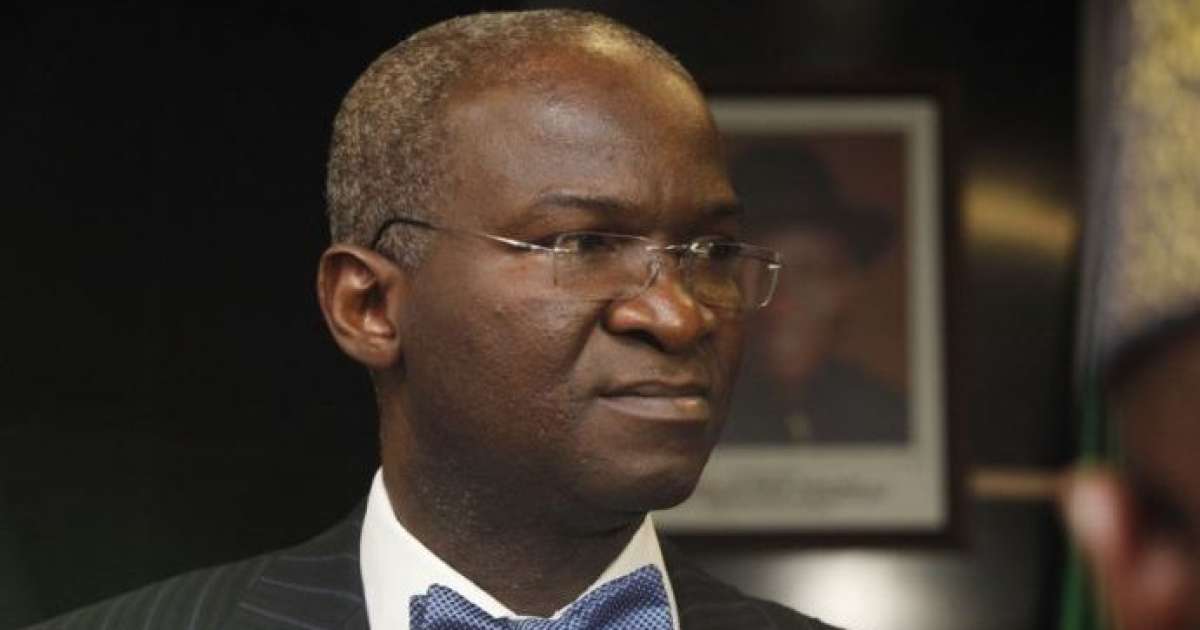The Minister of Power, Works and Housing, Mr Babatunde Fashola, on Thursday said that additional 945 megawatts of electricity would be added to the national grid before the end of the year.
Fashola said this at the Nigeria-South Africa Chamber of Commerce breakfast business meeting in Lagos themed: “Power Sector and the Way Forward’’.
He said that additional power would be generated to the grid from 450 mw Azura Edo plant, 215 mw Kaduna power plant, 240 mw Afam V power plant and 40mw Kashimbilla hydro plant in Taraba State.
According to him, the power sector has recorded successful improvement in incremental power capacity in generation, transmission and distribution.
“The country power generation, which stood at 4,000 megawatts when we came on board, but today, it has been increased to 7,000 megawatts.
In 2015, energy transmission was 5,000mw while distribution was at 3,000mw but as at today, we are distributing 5,000 mw on average with 2,000 megawatts stranded.
We are currently adding an average of 1,000 mw of energy yearly to the national grid which implies that we have added about 3,000 mw to the generation since we came on board,’’ he said.
Fashola said the statistics implied that 2,000 mw was stranded and must be evacuated for use as more power will be generated in the years to come.
He said that government had committed to invest N72 billion for the procurement and installation of equipment to help distribute unused 2,000 mw of electricity to consumers in the country.
He said the 2,000 mw was from the 7,000 mw that Gencos could generate and the 5,000 mw that Discos could distribute.
According to the minster, the Discos have complained about inadequate power to distribute.
Fashola, however, said the problem presently was that the Discos could not distribute all the power that was available.
This, he explained, was leaving the sector with an unused capacity of 2,000 mws, with an approximately 1,150 mw projected to come in 2018 and 2019 respectively.
He said that more Independent Power Projects (IPPs) would also come on stream to boost power supply in the country.
He said that government is also targeting powering some markets, Nigerian universities and hospitals through the IPP.
According to him, all these power plants do not involve the mini grids and solar systems that are coming.
Fashola said the narrative must change from not enough power to how unutilised power could be distributed.
He said that the sector had made progress on power generation and transmission, adding that distribution issues would also be cleared soon.
“The assurance guarantee brought confidence to power production business, which resulted to increased power production which took us to all-time high of 7,000mw power availability. However, grid supplied power peaked at all-time high of 5,155 MW in December 2017,’’ he added.
In his remark, Dr Oba Otudeko, Chairman of the occasion, lauded Fashola over the success recorded in improving the country’s power generation and distribution, adding that there is room for improvement.
Otudeko, who is also the live patron of the Nigeria-South Africa Chamber of Commerce, said “this is the most successful and achieved bilateral chamber of commerce in Nigeria. He said that the volume of trade between Nigeria and South Africa rose to N1.6 trillion in 2016.
“Trade between the two countries has increased steadily. It has increased exponentially which is commendable Nigeria presents a huge market with a population of over 170 million people and vast resources, while South Africa presents the technical know-how in developing industries,” he said.
2019: Weapons are being Stockpiled for Post Election violence – Security Council raises alarm

